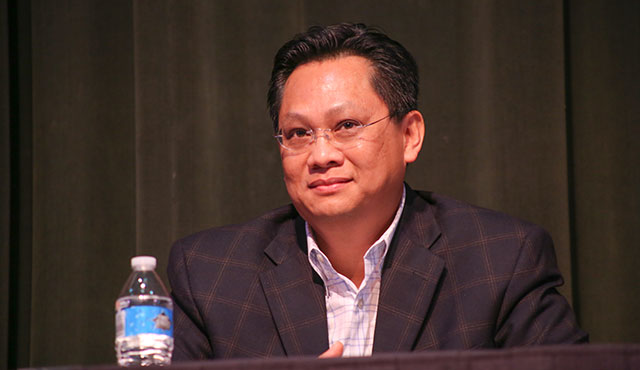How can Catholics in the state of California come to better understand end-of-life care options that uphold the dignity and sanctity of human life, a central element of Catholic social teaching? “Care, Prepare, and Connect” is an October 20 event sponsored by the Whole Person Care Initiative that seeks to address this vital issue that affects all people.
“Orange County has one of the largest aging populations in the country,” Linda Ji, the Director of Pastoral Care for Families in All Stages, said. “We as the Church want to make clear that those who are sick and dying are never a burden, but they are loved, wanted, and worthy,” Ji added. The Whole Person Care Initiative (WPCI), a collaborative project of the California Catholic bishops and Catholic health care leaders, seeks to provide a positive alternative to what the Institute of Medicine found in a 2014 study: that the spiritual, medical, and emotional needs for gravely ill people are largely unmet.
“[The initiative] was a recognition that we need to do a much better job, both in our health care ministries and in our parish ministries, of accompanying people in serious illness and at the end of life,” said Greg Walgenbach, Director of the Office of Life, Justice, and Peace. Walgenbach and Li, together with Bishop Vann, represent the Diocese of Orange on the statewide Whole Person Care Leadership Council that was established in October 2015. “Bishop Vann, who was heavily involved in the efforts to stave off the passage of physician-assisted suicide in California, has been a strong advocate for the implementation of the WPCI from the beginning,” Walgenbach said. The state’s much-debated End of Life Option Act, the so-called “death with dignity” law, took effect in California in 2016.
In October 2016, the leadership council presented a proposal of the WPCI to the California bishops and healthcare system leaders with a two-fold mission: to strengthen and improve the availability of Whole Person Care and palliative care in Catholic health systems and their hospitals, and to develop and implement Whole Person Care programs in dioceses and parishes. Though Whole Person Care is not a new concept, WPCI strives to actualize it within the specifically Catholic Christian idea of cura personalis, “care for the whole person.”
Dr. Vincent Nguyen, Palliative Care Program Medical Director at Hoag Memorial Hospital, sees the WCPI as “a pastoral and Catholic Healthcare System response to how poorly people die in our country that touts to spend the most money in medical care per capita of all developed countries in the world,” he said. “We are leading this charge to advance palliative care as a hallmark of Catholic healthcare,” he added.
That all people and families ultimately will encounter end-of-life scenarios brings a sense of urgency to the initiative. “Very few people actually take time to determine what type of health care they want to receive in the event that they are unable to speak for themselves,” Mark Jablonski, Vice President for Mission Integration for St. Jude Medical Center and WPCI committee member, said. “Our focus is on encouraging everyone in our community to complete an Advance Directive prior to their hospitalization, and then providing compassionate Palliative Care and Hospice Care as needed if or when they are facing the end-of-life,” Jablonski said.
The initiative’s statewide collaborative nature in both dioceses and healthcare systems is integral to its success. Whole Person Care has been the life work of Cindy Mueller, a nurse and now Program Manager for Emmaus Spiritual Ministries, one of the initiative’s partners and a ministry of the Sisters of St. Joseph of Orange. “[WPCI] is inspired and guided by the healing ministry of Jesus,” Mueller said. “The work of our life journey is our intimacy and relationship with God, forgiving of self and others, developing a deep sense of gratitude, and loving ourselves and others unconditionally,” Mueller added.
The “Care, Prepare, and Connect” event on October 20 at St. Edward the Confessor in Dana Point is the latest in a series of parish presentations geared to introduce not only the goals of the initiative, but to motivate parishioners to “start these often difficult conversations with their families and healthcare providers,” Ji said.
The event will include a screening of the Sundance short film End Game followed by a panel of experts addressing end of life ethics and to emphasize that families are not alone but supported by faith communities. Bishop Vann, Dr. Nguyen, Hoag Hospital’s Kristyn Fazzalaro, and Reverend Jack Sewell, part-time chaplain at St. Joseph Hospital, will participate in the panel discussion. Parishes that are strengthened in the goals of the WPCI will assure families and the seriously ill intimate accompaniment along the journey, the committee believes.
The “Care, Connect, and Prepare” forum will be followed by a full day Whole Person Care Conference at Christ Cathedral Campus on October 25.

